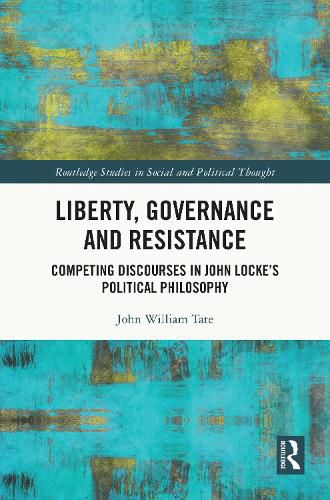Readings Newsletter
Become a Readings Member to make your shopping experience even easier.
Sign in or sign up for free!
You’re not far away from qualifying for FREE standard shipping within Australia
You’ve qualified for FREE standard shipping within Australia
The cart is loading…






John Locke is widely perceived as a foundational figure within the liberal tradition. This book investigates the competing discourses that inform Locke's political philosophy, each underwritten by a distinct purpose, not all of which result in philosophical outcomes consistent with what we today understand as "liberal" ideals.
Locke himself was unaware that he belonged to a "liberal" tradition. Traditions only acquire meaning in retrospect. But many have perceived the development of Locke's political philosophy as involving a smooth evolution from "authoritarian" origins to "liberal" conclusions, beginning with Locke's Two Tracts on Government (1660-62) and culminating in his later political works, the Two Treatises of Government (1689) and A Letter Concerning Toleration (1689). This book advances an interpretation of this development which reveals how, from the time of his earliest writings, Locke sought to advance competing discourses within his political philosophy, each reflecting a different purpose, with the result that this "evolution" was not as smooth as often supposed. Indeed, many of Locke's earlier commitments and purposes remained in his later political writings. The result is a much more complex and variegated understanding of Locke's political philosophy than hitherto supposed within the Locke literature.
Liberty, Governance and Resistance will be of interest to students and researchers studying Locke, liberalism, and the history of ideas.
$9.00 standard shipping within Australia
FREE standard shipping within Australia for orders over $100.00
Express & International shipping calculated at checkout
John Locke is widely perceived as a foundational figure within the liberal tradition. This book investigates the competing discourses that inform Locke's political philosophy, each underwritten by a distinct purpose, not all of which result in philosophical outcomes consistent with what we today understand as "liberal" ideals.
Locke himself was unaware that he belonged to a "liberal" tradition. Traditions only acquire meaning in retrospect. But many have perceived the development of Locke's political philosophy as involving a smooth evolution from "authoritarian" origins to "liberal" conclusions, beginning with Locke's Two Tracts on Government (1660-62) and culminating in his later political works, the Two Treatises of Government (1689) and A Letter Concerning Toleration (1689). This book advances an interpretation of this development which reveals how, from the time of his earliest writings, Locke sought to advance competing discourses within his political philosophy, each reflecting a different purpose, with the result that this "evolution" was not as smooth as often supposed. Indeed, many of Locke's earlier commitments and purposes remained in his later political writings. The result is a much more complex and variegated understanding of Locke's political philosophy than hitherto supposed within the Locke literature.
Liberty, Governance and Resistance will be of interest to students and researchers studying Locke, liberalism, and the history of ideas.